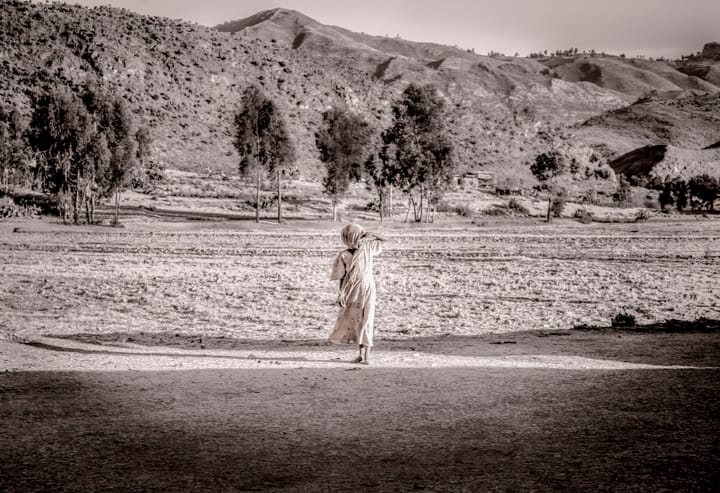If you’re a living, breathing human being, you’ve witnessed or experienced gender inequality in one of its many forms. Access to education, political representation, job segregation, wage gap, religious freedom, denial of bodily autonomy, lower-quality medical care and lack of legal protection are all examples of the disparity.
On this International Women’s Day, we’ve chosen to spotlight just one issue due to its devastating complexities: The role females play in areas that lack access to clean water.
By the Numbers
According to a report conducted by UNICEF, each day it’s estimated that women and girls worldwide spend 200 million hours collecting water. In relation, safe drinking water is not available to over 2 billion people. That number increases to 3 billion for those who don’t have access to sanitary hand washing facilities.
Since women are spending all of this time on that (often brutal) task, they are prevented from building meaningful lives for themselves and personally thriving.
Education
In many developing countries, young girls are expected to fetch the water for their families or villages. For example, this video shows a day in the life of a 13-year-old Ethiopian girl who spends 8 hours collecting just 5 litres of water.
While she’s doing that, she obviously doesn’t have time to attend school and get an education that could offer her more opportunities in life. There are thousands of girls just like her.
Health
The water loads women and girls most commonly carry are often in excess of 40 pounds. Many are taught to hold the full containers they’ve collected on top of their heads, which can lead to spinal, neck and head injuries, as well as musculoskeletal disorders. Some may experience chronic pain for the rest of their lives as a result.
In addition, because the water sites are often not geographically close to the communities that need them, the water collectors often spend several hours walking to and from the location. This means they’re likely getting up very early or staying up very late to access the water before it could be contaminated, and losing out on valuable sleep. This deprivation of rest can lower their immune systems and make them more susceptible to illness.
Dehydration and sunstroke are also common for those in warmer climates who are retrieving the water in blistering heat. Furthermore, women who are pregnant while they fetch water are more likely to have complications leading up to the birth of their child.
Mental health issues such as anxiety and depression can also be caused by gathering water, as there is often trauma associated with accidents and issues endured en route.
Safety
Aside from injuries, ailments and stress on mental health, there are dangerous risks associated with retrieving water, especially in the dark of night.
Wild animals can attack, and with no weapons to defend themselves, women and girls are especially vulnerable. The same is true for violent human attacks, as rape and assault are unfortunately common on well-known water routes.
Plus, there is the risk of drowning in the actual water source, whether it be a well or a river or a spring, because many of the women and girls collecting the water don’t know how to swim.
Business
Though it’s been proven that when more women work, economies grow, women who fetch water don’t have the time or acquired skills to enter the outside workforce. This makes them unable to help stimulate the economy in their own community and continues the cycle of poverty.
How to Help
To donate to related causes, choose from The Cynthia Lennon Scholarship for Girls or our Education & Health and Clean Water areas of giving.
Without making a monetary donation, you can contribute time by sharing related social media posts to spread awareness, take action on related campaigns at Global Citizen or click-to-give to a variety of worthy causes.
Together we can help put an end to this grim cycle of inequality.
Photo © Julian Lennon. To view more of his fine art photography, visit julianlennonphotography.com.


